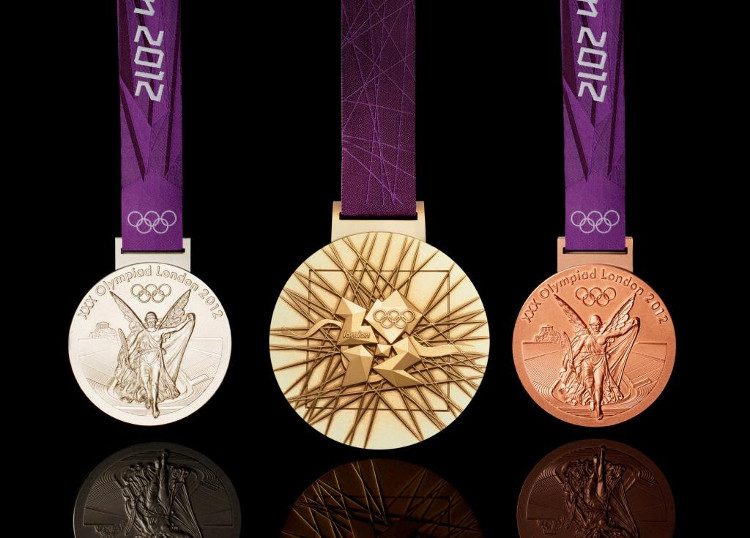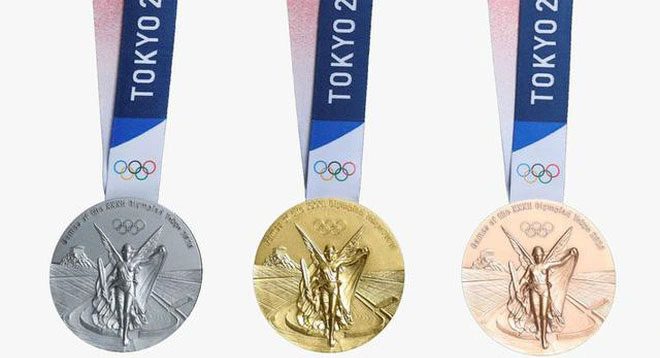In an effort to contribute to building a “green world,” the organizers of the 2020 Olympic Games in Japan announced plans to “transform” electronic waste into medals for this event, as well as for the subsequent Paralympic Games.
According to the plan, the organizers of the 2020 Olympics will collect 8 tons of metals from across the country to create 5,000 medals for both the Olympic and Paralympic events.

Using recycled metals to create medals is not a new concept.
The 2020 Olympic organizers are also calling on the public to assist by voluntarily donating broken digital cameras, laptops, old phones, etc., at collection points set up in over 2,000 stores and offices of NTT Docomo, Japan’s leading mobile telecommunications provider and a major sponsor of the 2020 Olympics.
In fact, using recycled metals to create medals is not a new concept.
At the Rio 2016 Olympics, 30% of the gold and silver medals were made from recycled metals.
The 2020 Olympic organizers aim to minimize costs for this event as much as possible.
The design for the medals was selected from over 400 creative designs submitted in a nationwide medal design competition.
According to reports from Japanese media, they have collected 79,000 tons of old phones and electronic devices during the donation campaign.
Among these, they have extracted 32 kg of gold, 3,500 kg of silver, and 2,200 kg of copper and zinc. This metal will be used to mint 5,000 medals for the 2020 Olympics.
The organizers stated: “These medals emit and reflect countless light effects. They symbolize the energy of the athletes and their supporters.”
Previously, there were concerns that preparations for the 2020 Olympics would be hindered by soaring costs.
Experts estimate that the total cost for the 2020 Olympics will reach nearly $30 billion, four times the initial estimate and nearly three times the cost of the 2012 Olympics.
However, at the end of last year, the 2020 Olympic organizers announced a more reasonable preparation plan, costing approximately $17 billion, which includes making medals from electronic waste.

At the 2020 Olympics, medals will not be awarded in the traditional manner.
Additionally, at the 2020 Olympics, the organizers will not present medals in the traditional way. Athletes will receive their medals from a tray instead of having them draped around their necks as before. This change is made to prevent close contact and ensure COVID-19 safety protocols.
International Olympic Committee President Thomas Bach stated: “Medals will not be draped around the athletes’ necks. We will provide athletes with a tray. They will then take the medals themselves.
It is essential to ensure that those placing the medals on the tray wear sterilized gloves to guarantee that no one touches them with bare hands before they reach the athletes.”



















































